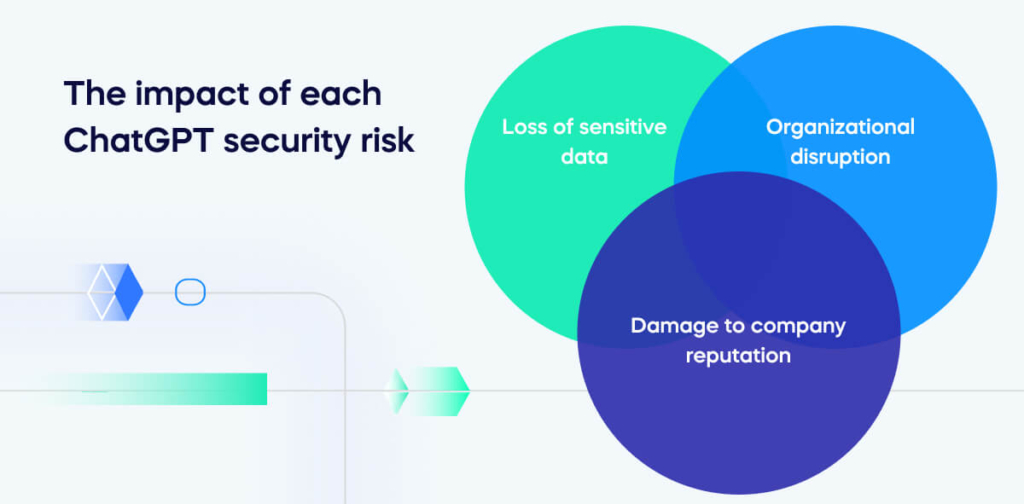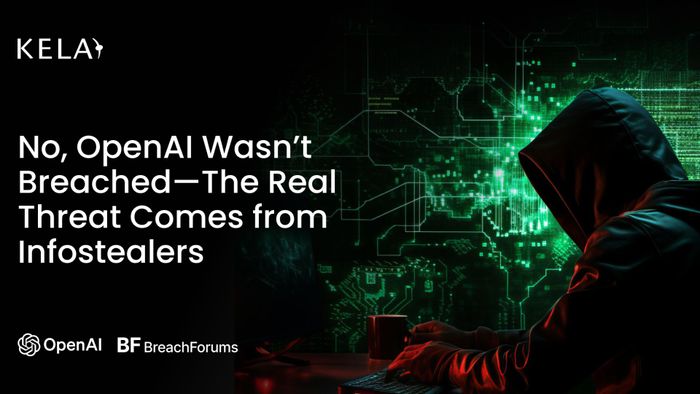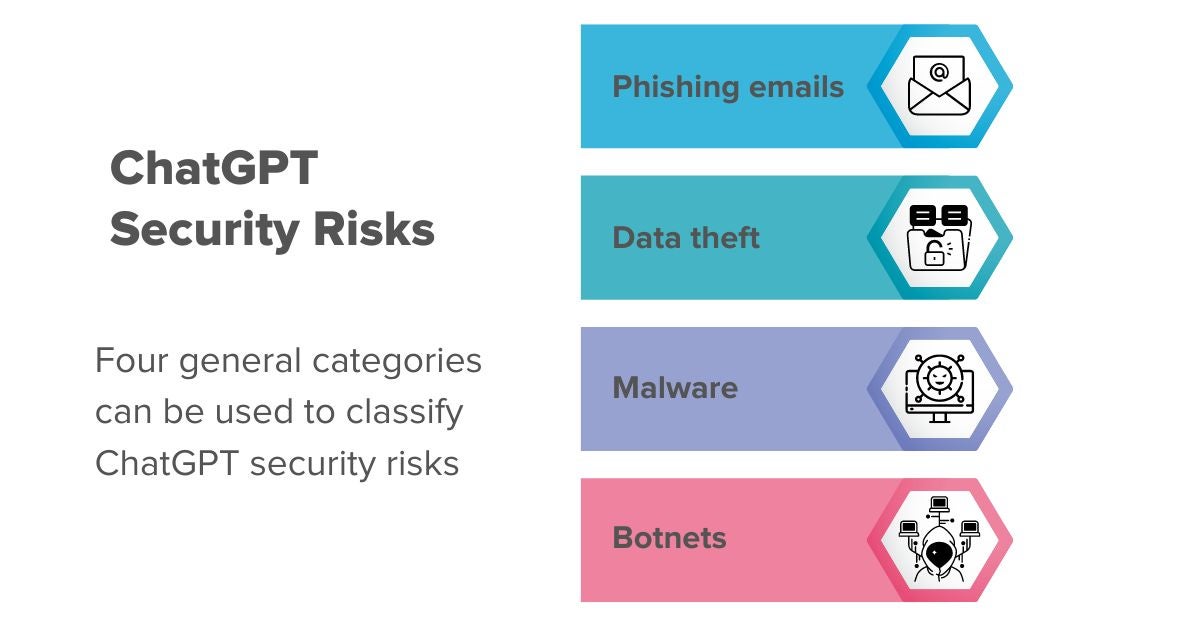Is ChatGPT Safe for Business? 8 Security Risks & Compliance ...
Unleash the power of AI safely! This updated article explores the latest security risks of using ChatGPT in your organization and offers practical solutions to mitigate them in 2025. Learn how to leverage AI responsibly in the era of expanding regulations.

ChatGPT Security Risks for Businesses
ChatGPT security risks are significant for businesses, with major credential exposures on dark web markets while the platform processes over 1 billion daily queries. Most organizations lack proper ChatGPT security visibility and controls, creating substantial vulnerabilities.
New AI regulations like the EU AI Act are creating compliance requirements with penalties up to €35 million, with key provisions taking effect in 2025.
With artificial intelligence adoption accelerating across enterprises—now used by 92% of Fortune 500 companies—ChatGPT security concerns have become more critical than ever. As we move through 2025, security teams face unprecedented ChatGPT risks, confronting AI security threats they may never have encountered before.

Evolution of ChatGPT Security Risks
ChatGPT security risks have evolved significantly since its initial release. Recent studies show that 69% of organizations cite AI-powered data leaks as their top security concern in 2025, yet nearly 47% have no AI-specific security controls in place.
The primary ChatGPT security threats come from the information employees input into the system. When employees input sensitive data to ChatGPT, they may not consider the ChatGPT privacy implications when seeking quick solutions to business problems.
According to updated research, sensitive data still makes up 11% of employee ChatGPT inputs, but the types of data being shared have expanded to include:
- Copying and pasting sensitive company documents into ChatGPT

Copying and pasting sensitive company documents into ChatGPT has become increasingly common, with employees often unaware of ChatGPT GDPR risks under new AI regulations.
The most significant ChatGPT security risk involves employees sharing sensitive data through the platform. While OpenAI has implemented stronger data protection measures, ChatGPT retains chat history for at least 30 days and can use input information to improve its services.
New in 2025: Enterprise ChatGPT versions offer improved data handling, but the default consumer version still poses significant ChatGPT business risks.
Security Breaches and Vulnerabilities
A significant ChatGPT security breach resulted in over 225,000 OpenAI credentials exposed on the dark web, stolen by various infostealer malware, with LummaC2 being the most prevalent. When unauthorized users gain access to ChatGPT accounts, they can view complete chat history, including any sensitive business data shared with the AI tool.

ChatGPT security vulnerabilities during data transmission pose significant risks. Sensitive information shared with ChatGPT could be intercepted during transmission, giving malicious actors opportunities to misuse business data or intellectual property.
Researchers discovered CVE-2024-27564 (CVSS 6.5) in ChatGPT infrastructure, with 35% of analyzed organizations at risk due to misconfigurations in security systems.
Sophisticated Threats and Compliance
ChatGPT security concerns now include sophisticated AI-generated content risks. In 2025, cybersecurity researchers observe that AI-generated phishing emails are more grammatically accurate and convincing, making ChatGPT-powered social engineering attacks harder to detect.
Bad actors now use ChatGPT to create highly convincing email copy and messages that imitate specific individuals within organizations. Recent research shows ChatGPT phishing attacks are more convincing, and AI is used to craft deepfake voice scams, with 2025 predictions warning of AI-driven phishing kits bypassing multi-factor authentication.
Prompt injection represents a new category of ChatGPT security threats where malicious actors craft prompts designed to trick ChatGPT into revealing sensitive information or bypassing safety guardrails. Research shows that by prompting ChatGPT to repeat specific words indefinitely, attackers could extract verbatim memorized training examples, including personal identifiable information and proprietary content.

"Shadow ChatGPT"—unauthorized or unmonitored ChatGPT usage within enterprises—affects nearly 64% of organizations that lack ChatGPT visibility. This creates significant blind spots for security teams managing ChatGPT business risks.
Regulatory Compliance
New ChatGPT regulations like the EU AI Act create significant compliance requirements with prohibitions starting February 2, 2025, and full ChatGPT compliance required by August 2026. California's updated CCPA now treats ChatGPT-generated data as personal data. 55% of organizations are unprepared for AI regulatory compliance, risking substantial fines and reputational damage from ChatGPT non-compliance.
Conclusion
The answer regarding ChatGPT business safety in 2025 is nuanced. While ChatGPT itself has implemented stronger security measures, including enhanced encryption, regular security audits, bug bounty programs, and improved transparency policies, the primary ChatGPT risks come from how organizations and employees use the tool, particularly without proper governance frameworks.

The organizations that succeed in 2025 will be those that treat ChatGPT security not as a barrier to innovation, but as an enabler of responsible AI adoption that builds trust with customers and stakeholders while protecting valuable business assets.
Current ChatGPT threat assessment: There are confirmed dangers associated with sharing sensitive data in unsecured AI environments, including risks of data breaches, reputational damage, and financial losses. The National Cyber Security Centre continues to warn that AI and Large Language Models could help cybercriminals write more sophisticated malware and conduct more convincing phishing attacks.
Recommendations for 2025
Updated for 2025: Conduct regular ChatGPT security training sessions covering:
Key ChatGPT security trends shaping 2025 and beyond:
Bottom Line: While ChatGPT and similar AI tools offer tremendous productivity benefits, the ChatGPT security landscape has become significantly more complex. Organizations must balance innovation with ChatGPT security through:
- Developing clear AI usage policies
- Providing comprehensive security training
- Regularly auditing AI systems
- Implementing robust data protection measures




















